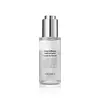What's inside
What's inside
 Key Ingredients
Key Ingredients

No key ingredients
 Benefits
Benefits

 Ingredients Side-by-side
Ingredients Side-by-side

Hydrolyzed Collagen Extract
Skin ProtectingGlycerin
HumectantPropanediol
SolventValine
MaskingHydrogenated Polyisobutene
EmollientNeopentyl Glycol Diheptanoate
EmollientLeucine
Skin ConditioningGlycereth-26
Humectant1,2-Hexanediol
Skin ConditioningDicaprylyl Carbonate
EmollientNiacinamide
SmoothingButylene Glycol
HumectantSoluble Collagen
HumectantHydrolyzed Collagen
EmollientWater
Skin ConditioningAtelocollagen
Skin ConditioningAdenosine
Skin ConditioningAnemarrhena Asphodeloides Root Extract
Skin ConditioningSerine
MaskingGlutamic Acid
HumectantProline
Skin ConditioningSodium Hyaluronate
HumectantAspartic Acid
MaskingAlanine
MaskingLysine
Skin ConditioningChondrus Crispus Extract
Skin ConditioningGlycine
BufferingArginine
MaskingTyrosine
MaskingPhenylalanine
MaskingThreonine
Isoleucine
Skin ConditioningTocopherol
AntioxidantHistidine
HumectantCysteine
AntioxidantMethionine
Skin ConditioningHydrolyzed Elastin
EmollientHyaluronic Acid
HumectantHydroxypropyltrimonium Hyaluronate
Sodium Acetate
BufferingCellulose
AbsorbentHydrolyzed Hyaluronic Acid
HumectantSodium Acetylated Hyaluronate
HumectantHydrolyzed Sodium Hyaluronate
Skin ConditioningSodium Hyaluronate Crosspolymer
HumectantPotassium Hyaluronate
Skin ConditioningEthylhexylglycerin
Skin ConditioningTrilaureth-4 Phosphate
EmulsifyingHydroxyethylcellulose
Emulsion StabilisingDisodium EDTA
Hydrolyzed Collagen Extract, Glycerin, Propanediol, Valine, Hydrogenated Polyisobutene, Neopentyl Glycol Diheptanoate, Leucine, Glycereth-26, 1,2-Hexanediol, Dicaprylyl Carbonate, Niacinamide, Butylene Glycol, Soluble Collagen, Hydrolyzed Collagen, Water, Atelocollagen, Adenosine, Anemarrhena Asphodeloides Root Extract, Serine, Glutamic Acid, Proline, Sodium Hyaluronate, Aspartic Acid, Alanine, Lysine, Chondrus Crispus Extract, Glycine, Arginine, Tyrosine, Phenylalanine, Threonine, Isoleucine, Tocopherol, Histidine, Cysteine, Methionine, Hydrolyzed Elastin, Hyaluronic Acid, Hydroxypropyltrimonium Hyaluronate, Sodium Acetate, Cellulose, Hydrolyzed Hyaluronic Acid, Sodium Acetylated Hyaluronate, Hydrolyzed Sodium Hyaluronate, Sodium Hyaluronate Crosspolymer, Potassium Hyaluronate, Ethylhexylglycerin, Trilaureth-4 Phosphate, Hydroxyethylcellulose, Disodium EDTA
 Reviews
Reviews

Ingredients Explained
These ingredients are found in both products.
Ingredients higher up in an ingredient list are typically present in a larger amount.
1,2-Hexanediol is a synthetic liquid and another multi-functional powerhouse.
It is a:
- Humectant, drawing moisture into the skin
- Emollient, helping to soften skin
- Solvent, dispersing and stabilizing formulas
- Preservative booster, enhancing the antimicrobial activity of other preservatives
Adenosine is in every living organism. It is one of four components in nucleic acids that helps store our DNA.
Adenosine has many benefits when used. These benefits include hydrating the skin, smoothing skin, and reducing wrinkles. Once applied, adenosine increases collagen production. It also helps with improving firmness and tissue repair.
Studies have found adenosine may also help with wound healing.
In skincare products, Adenosine is usually derived from yeast.
Learn more about AdenosineArginine is an amino acid that is important for human development. Your body uses is it to produce hair keratin and skin collagen.
As a cosmetic ingredient, Arginine has antioxidant properties and can also help repair damaged skin. This ingredient is derived either synthetically or from animals.
Arginine isn't fungal acne safe when used in the presence of other lipids (fats, fatty acids, oils, esters, etc). Oils and fats occur naturally within the skin, so take caution when using Arginine if you're prone to fungal acne.
Learn more about ArginineEthylhexylglycerin (we can't pronounce this either) is commonly used as a preservative and skin softener. It is derived from glyceryl.
You might see Ethylhexylglycerin often paired with other preservatives such as phenoxyethanol. Ethylhexylglycerin has been found to increase the effectiveness of these other preservatives.
Glycereth-26 is a synthetic ingredient and polyethylene glycol ether of Glycerin. Glycerin is already naturally found in your skin and helps keep your skin moisturized.
It is a humectant and helps add texture to products. It can make your product thicker.
As a humectant, it helps draw moisture from the air to your skin. This helps your skin stay hydrated.
Learn more about Glycereth-26Hydrolyzed collagen has a misleading name because it is actually a mixture of various proteins/peptides. This ingredient has skin hydrating properties.
Collagen is the most abundant type of structural protein found in your body. In your skin, it is responsible for keeping it firm and youthful.
Hydrolyzed Collagen is created by breaking up proteins into smaller peptide bonds. These peptides act as humectants and emollients.
Humectants are great at holding onto water, keeping skin hydrated. Emollients create a thin barrier on the skin to prevent moisture from escaping.
There is ongoing debate about whether hydrolyzed collagen works because it increases skin hydration. Skin hydration is also linked to elasticity and the appearance of wrinkles.
Collagen or peptide ingredients can be used in the morning or night. They will not increase sun sensitivity, but you should always wear sunscreen during the day.
According to a manufacturer, this ingredient is a great hair conditioner as well.
This ingredient can be extracted from different sources, including:
Vegan collagen is derived from yeast, bacteria, or plant sources. Vegan collagen would go by a different INCI name, such as hydrolyzed soy protein.
The results are varied.
A study from 2021 found hydrolyzed collagen increased elasticity and improved wrinkles in 1,125 participants between age 20 and 70. Another study found increased skin thickness in participants between the ages of 45 to 59.
However, It is difficult to prove that oral collagen will end up working on your skin. Many of the studies using hydrolyzed collagen also add several vitamins and nutrients into the test mixture as well.
Further studies are needed at this time.
Learn more about Hydrolyzed Collagen